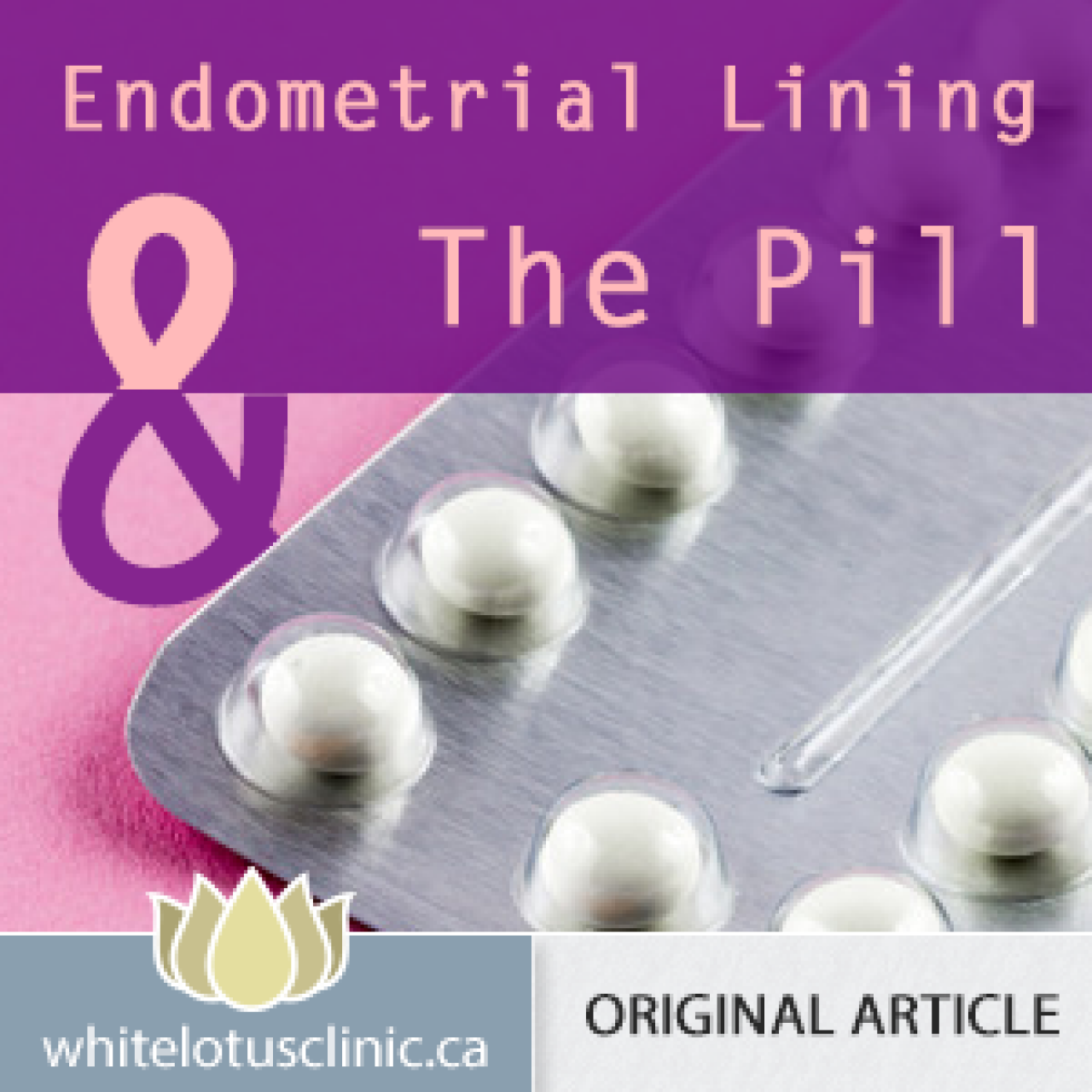Many women take the birth control pill for periods of time in their lives. Oral contraceptives have many uses in women’s health, ranging from the most obvious ones like contraception to the treatment of hormonal disorders. In some women who have conditions such as PCOS or endometriosis, the birth control pill is often used as a long term treatment option. It is prescribed either to induce menstrual cycles in PCOS, or to quiet and calm down endometriosis tissue and pain.
After working in naturopathic fertility care for over 14 years, I’ve treated many patients going through assisted reproductive technology including IVF, IUI, and Frozen Embryo transfers. Over time, I’ve seen that there are some women whose endometrial linings will not thicken enough to proceed with a transfer. Conventional treatments for this particular problem may include high doses of Estrace, and other therapeutics aimed at increasing blood flow.
Thin lining can happen for a variety of reasons, ranging from low estrogen, to poor blood flow and low nitric oxide. In many cases, thin lining can be successfully treated using Estrace, supplements or medications which increase nitric oxide and blood blow. Acupuncture protocols can also be employed with a generally excellent degree of success. Unfortunately, in some cases, thin linings can be resistant to these therapies. In some of these cases there appears to be a correlation between the long term use of oral contraceptives (birth control pills).
A study conducted in 2012, reviewed the charts of 137 women in a fertility clinic who were undergoing a frozen embryo transfer cycle. During this type of cycle, no follicles (eggs) are retrieved, and a previously frozen embryo is transferred into the uterus. This requires the endometrial lining to be at an optimal thickness, so that the embryo may implant. 30 of the patients in the group of 137 had an endometrial thickness of less than 0.7mm, which is thinner than the minimum requirement to transfer the embryos.
The mean number of years of birth control pill use was 9.8 in the group with the thin lining and 5.8 in the group with normal linings.
When the statistics were analyzed further, it was found that approximately 63% users in the thin lining group had been on oral contraceptives for 10+ years compared with only 28% in the normal lining group.
Interestingly, it appears that this problem could be related to the ratios of the estrogen and progesterone receptors in the lining. In these women it may be that the ratio of estrogen to progesterone receptors may in fact be reduced. This may be similar to the mechanism through which Clomid can result in a thin endometrial lining.
Studies in rats have shown that with long term synthetic progestin use, the number of estrogen receptors in the endometrial lining will decrease. This may occur through the same mechanisms by which the oral contraceptive pill reduces the risk of endometrial cancers.
Another concern is that the regenerative stem cells in the endometrium become less active with the prolonged downregulation from birth control use.
I spoke with Dr. Bob Casper, one of the authors of this study and one of the most prominent Reproductive Endocrinologists in Toronto to ask him about his perspective and clinical experience on this matter.
Dr. Casper has been seeing this correlation between long term oral contraceptive use in patients with resistant thin endometrial lining in his practice and has been working to find a solution for this. He mentioned that using larger doses of Estrace does not help in these particular women and may even reduce the number of estrogen receptors further in the endometrial lining through a process similar to a feedback mechanism. As such he is researching new therapies to restimulate the growth of endometrial lining.
Dr. Casper also mentioned that working in the field of fertility makes these cases more visible, and that there are likely many women who do not have this outcome from using the birth control pill. It is not known why some women develop this problem and others do not. Currently, Dr. Casper and his team are working hard to effect this condition through research. I’m also doing some research on supplements and nutritional modifications to upregulate estrogen receptors and stem cell regeneration in the endometrium. Hopefully there will soon be an effective solution to this clinical challenge.
References
- Oshrit Lebovitz, Raoul Orvieto. Treating patients with “thin” endometrium – an ongoing challenge. Gynecological Endocrinology 2014 30:6, 409-414
- Talukdar N, Bentov Y, Chang PT, Esfandiari N, Nazemian Z, Casper RF. Effect of long-term combined oral contraceptive pill use on endometrial thickness. Obstet Gynecol. 2012 Aug;120(2 Pt 1):348-54.





